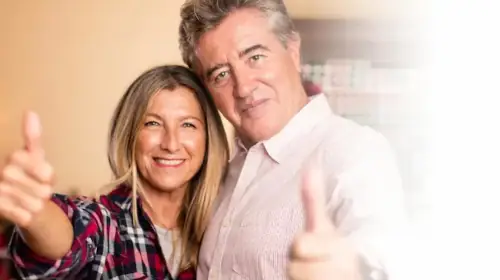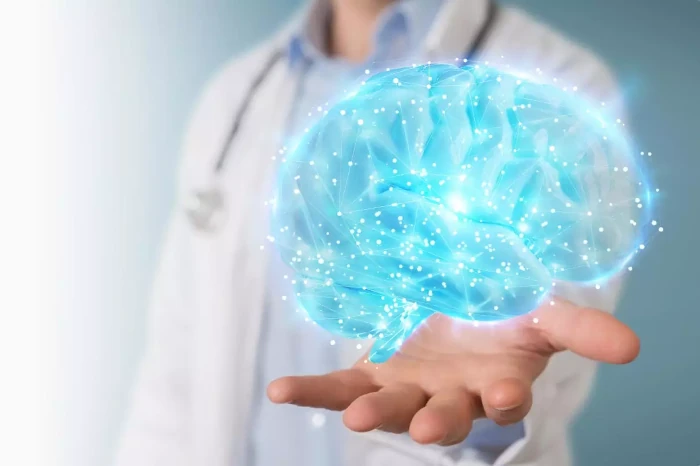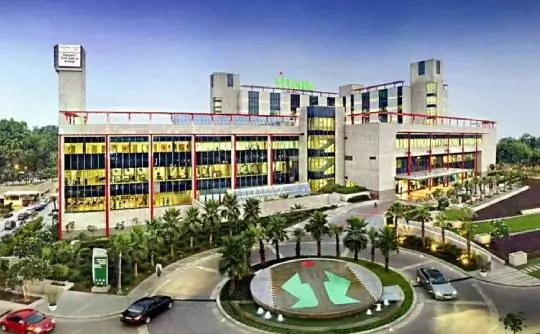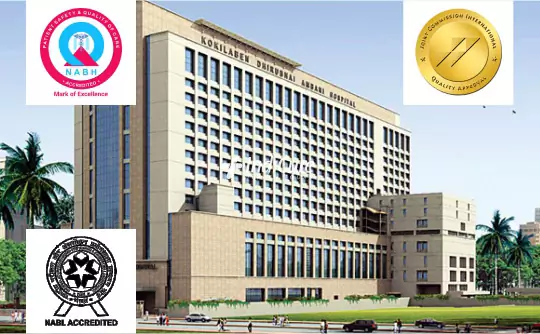

The Deep Brain Stimulation (DBS) cost in India starts at approximately USD 18,000, but it can vary based on several factors, including the type of device used, the patient's medical condition and history, any existing comorbidities, the surgeon's expertise, the choice of surgical facility, and the city where the procedure is performed.
It is important to note that this is an estimated figure and should not be taken as the definitive deep brain stimulation cost in India. The precise cost will be determined after a thorough evaluation by the surgeon. Furthermore, the cost in Indian Rupees may vary depending on the prevailing exchange rates.
A significant cost to consider when planning a deep brain stimulation in India is the neurosurgeon's fee. IndiCure Health Tours connects you with board-certified surgeons who are highly experienced and have a proven track record of successful surgeries. Although the surgeon's fee may vary depending on their experience and reputation, you can rely on IndiCure to recommend professionals who prioritize your safety and ensure excellent results for your DBS surgery in India.
Choosing an accredited surgical center with experienced and qualified medical professionals is crucial for a successful deep brain stimulation surgery in India. Major cities such as Mumbai and Delhi offer advanced medical infrastructure and access to highly skilled surgeons, which may result in a higher deep brain stimulation cost in India. To guarantee exceptional care and patient safety, IndiCure Health Tours recommends leading surgical facilities in these metropolitan areas.
Surgery-related costs include both pre-and post-operative expenses. Pre-operative costs are influenced by factors such as the patient's age and medical condition, determining the necessity and type of investigations needed. Post-operative expenses may involve prescribed medications and subsequent follow-up appointments.
At IndiCure Health Tours, we streamline the majority of expenses for your DBS surgery in India, offering an all-inclusive and budget-friendly package that is customized to your specific needs and financial requirements. Once we receive your medical reports, your dedicated case manager will provide an estimated deep brain stimulation cost in India based on discussions with the surgeon.
The final deep brain stimulation cost in India, however, will be confirmed after your in-person consultation with the surgeon.

We Help you Choose the Right Treatment, Surgeon & Hospital

We Arrange Video/Telephonic Consultation with the Surgeon

We Assist you with Visa & Accommodation

We Receive you at the Airport and Drop you at Hotel/Hospital

We Assist you the at Hospital & Provide Post Operative Support
IndiCure enables exclusive savings on your medical travel to India. We partner with the top hospitals to negotiate special rates, ensuring you get the best possible price on your healthcare when you travel with us.

Here is a set of questions you should consider asking before commencing your journey for deep brain stimulation surgery in India.
Prepare to answer questions about your:
Deep brain stimulation is a surgical procedure that involves implanting a medical device called a brain pacemaker beneath the collarbone in the skin of the chest. The pacemaker, also known as an implanted pulse generator (IPG), transmits electrical impulses to particular regions of the brain to assist treat nervous system problems that are otherwise resistant to treatment, such as chronic pain, Parkinson's disease, stiffness, tremors, dyskinesia, and dystonia.
DBS surgery has the advantage of causing no injury to brain tissue, unlike other operations such as pallidotomy or thalamotomy. The DBS treatment is also reversible.
You may be a candidate for DBS surgery if you have been diagnosed with Parkinson's disease and have had disabling dyskinesia or dystonia, if you have had OCD or tremors for the previous 5 years, and if pharmacological therapy and other interventions have failed to relieve your symptoms.
DBS surgery is not appropriate for everyone suffering from Parkinson's disease or other movement problems. If a person is a good candidate for DBS, they should speak with a neurologist who specializes in movement disorders.
These factors make a person a less-than-ideal candidate for DBS surgery:
Some of these issues might be able to be treated. A person who has one or more of these disorders is not automatically disqualified for future DBS surgery, but the doctor may recommend more active therapy to address these concerns before surgery.
This intricate neurosurgical procedure is typically performed under general anesthesia to ensure the patient remains completely unconscious and comfortable throughout the operation.
To start with, the surgeon locates the area to be treated either by using the MRI / CT scan or they use the electrode recording technique for mapping and targeting the brain area to be treated.
After locating the area, the electrodes are implanted in the target area whose loose end is placed under the skin of the head and the incisions are sutured back.
The second part of the surgery is the placement of the impulse generator in the chest. It is done using general anesthesia and a generator is placed and positioned to connect with the electrode using extension wires.
Once activated, the device sends continuous electrical pulses to the target areas in the brain, blocking the impulses that cause tremors ( involuntary movements that can affect the hands, arms, eyes, face, head, vocal cords, trunk, and legs).
The majority of patients report considerable improvement in their symptoms and a significant reduction in their medication after surgery. Patients are encouraged to continue taking the medicine for a few weeks following DBS and then gradually taper off.
You may feel tired after surgery, and there may be some inflammation and soreness at the stitch site, which can be treated with medications. You can expect a quick recovery, though some patients may experience disorientation for a few days following surgery.
The average hospital stay following DBS surgery is 24 hours, however, this can vary depending on how quickly the patient recovers and is ready to return home. The doctor will come to see the patient, make sure they are ready to leave, and give them advice for home care.
After you are released from the hospital, it's critical to keep the incisions clean and dry at home. While the surgery site heals, the doctor will give the patient particular instructions on how to bathe. If stitches are present, they will be removed during a subsequent visit. If adhesive strips are used, they should be kept dry and will usually peel off after a few days.
The patient will be given a magnet to use to switch the neurostimulator on and off according to their doctor's instructions.
The patient will return to the doctor after the DBS lead(s) and neurostimulator are in place to have the neurostimulator programmed for optimal electrical stimulation. Although some clinicians activate the neurostimulator before the patient is discharged from the hospital following surgery, programming usually begins a few weeks after the DBS procedure.
Programming takes time, and modifying the neurostimulator settings may require multiple appointments. Simultaneously, the doctors will review the patient's prescriptions and dosages to ensure that the drugs function in tandem with the electrical stimulation to control symptoms.
The neurostimulator is powered by a battery that lasts three to five years on average. When the neurostimulator's battery runs out, doctors can replace it in an outpatient surgery. There are also rechargeable neurostimulators, which last longer but must be recharged on a regular basis.
Tremors, stiffness, slowness, and dyskinesias are all symptoms of Parkinson's disease that can be improved by DBS surgery. It can help reduce the amount of medicine a patient needs to control their Parkinson's disease.
Many patients with DBS continue to experience improvements in their symptoms for several years following the treatment, and they are able to eat, use the bathroom, and feed themselves, according to researchers who have followed them. Memory, thinking, and mood alterations may or may not occur in patients receiving DBS for mobility disorders.
Parkinson's disease is now a progressive disorder that cannot be completely reversed. Other symptoms such as poor posture, speech impairment, gait freezing, balance problems, and dementia may still emerge while DBS is being used to treat tremors, stiffness, and slowness.

Gurgaon
Fortis Memorial Research Institute (FMRI), the flagship hospital of Fortis Healthcare, is a multi-specialty, quaternary care hospital and is counted among the best hospitals in India and the world. The hospital is considered as "Mecca of Healthcare" and a referral hospital, not only in the entire Asia Pacific but much beyond.

Mumbai
Kokilaben Dhirubhai Ambani Hospital is one of the most advanced and modern hospitals in India. It is a state-of-the-art tertiary care multi-specialty hospital located in the biggest suburb of Mumbai- Andheri. The hospital was launched by Reliance Group in 2008.
Indian hospitals are known around the world for their high-quality care and world-class infrastructure. The best deep brain surgery hospitals in India feature a dedicated neurosciences department that is regarded as a Center of Excellence.
National and international bodies such as the National Accreditation for Facilities and Healthcare Providers (NABH) and the Joint Commission International have accredited these hospitals (JCI). These certifications guarantee the quality of clinical care and safety.
The most up-to-date surgical and medical techniques are available in neurosurgery hospitals in Delhi, Mumbai, Chennai, and other major cities. Minimally invasive procedures, robot-assisted surgery, and other techniques are among them. The diagnostic departments at hospitals are also equipped with the most up-to-date technology. The diagnostic departments of these hospitals are also equipped with the most up-to-date imaging techniques, including functional brain MRI, sophisticated CT scans, and more.
In suitably selected patients, deep brain stimulation is regarded as a safe and effective treatment for a variety of neurological diseases, including Parkinson's disease, tremor, dystonia, obsessive-compulsive disorder, and epilepsy. When drugs and other procedures fail to maintain a patient's decent quality of life, DBS is advised.
However, not all patients are candidates for this surgery, particularly those who are unable to manage device stimulation or individuals with Parkinson's disease and Essential Tremor who have failed to respond to test stimulation. DBS is not recommended for those with a number of medical problems.
Certain sources of electromagnetic interference (EMI) may damage the device or cause injury to the patient. Some patients may experience a brief increase in perceived stimulation as a result of airport security screening gadgets and theft detectors in malls or shops switching on or off. It is best to notify security people about the gadget and carry a device card with the information.
Other medical devices or procedures, such as cardiac pacemakers, cardioverters or defibrillators, ultrasonic equipment, external defibrillators, electrocautery, or radiation therapy, can be influenced or adversely affected by the DBS device system. During your consultation, be sure to tell the doctor about your equipment. Before prescribing the optimal treatment choice for the clinical condition, the doctor will take this into account.
Excessive heating of the lead electrodes during magnetic resonance imaging (MRI) can result in serious or perhaps permanent brain injury, including paralysis, coma, or death. It could also harm the device, especially if the neurostimulator is implanted anywhere other than the pectoral and abdominal regions. It is recommended that you never have an MRI without first consulting the medical team who performed the DBS operation. It's critical to tell the radiologists which sort of MRI is safe for your DBS system, as certain devices are MRI compatible, while others aren't.
Apart from the cost of procedure for deep brain stimulation in India, there are additional expenses to consider when planning your trip. This includes budgeting for meals, airfare costs which will vary depending on your location of origin and the time of booking, and ground transportation expenses, such as taxi fares or rental car costs. Lastly, accommodation costs during your recovery period are crucial to consider, whether you opt for a hotel near the medical facility or other lodging options that suit your preferences and budget.
By carefully considering these additional expenses alongside the deep brain stimulation cost in India, you can better plan and budget for your trip to India, ensuring a smooth and comfortable experience during your recovery process.
Make your medical trip to India even more comfortable and complete with our range of additional services, designed to take care of all your needs beyond the hospital.
Traveling abroad for medical reasons can be challenging if you are alone, but with IndiCure by your side, it doesn't have to be. With over fifteen years of experience and an exclusively curated network of India's best surgeons and top hospitals, we make your medical tour to India easier and safer. We will guide you at every step, handling all the end-to-end arrangements for your surgery, travel, and stay.
Ramandeep Dhaliwal
a month ago
I had great experience having rhinoplasty through Indicure. Dr. Ruchika from Indicure has helped me in finding best plastic surgeon, answering all my questions...
Ramandeep Dhaliwal's Full Review
Joshua Archer
3 months ago
My name is Joshua Archer I'm from New Zealand, bay of plenty, kawerau I opted for the bypass surgery in January 2023 but planned it in advance for 28 September found IndiCure...
Joshua Archer's Full Review
Kera Ren
8 months ago
Absolutely loved my experience with IndiCure - from first inquiring to meeting the surgeon pre op to my follow up post op. The surgeon was extremely approachable...
Kera Ren's Full Review
Andreana Paul
5 months ago
Had a wonderful experience. Visited India for my plastic surgery. From sending mails, airport pickup, comfortable accommodation and, to smooth hospital appointment booking...
Andreana Paul's Full Review
Brandi Luce
5 months ago
I had the privilege of using Indicure's services for a cosmetic procedure that I had wanted for a long time but had always been apprehensive about. Ruchika helped me...
Brandi Luce's Full Review
Jade M
3 years ago
Indicure Health Tours went above and beyond my expectations. They helped me with every aspect of my journey and were professional, kind and caring. I was...
Jade M's Full Review
The content on the website (www.indicure.com) is intended to be general information and is provided only as a service. All photographs on our website of before and after results are examples only, and do not constitute an implied or any other kind of certainty for the result of surgery.
Learn about IndiCure Health Tours' comprehensive editorial policy that strives to deliver trustworthy, helpful, relevant, accurate and people-first content on medical tourism in India.
It is not medical advice and should not be taken as medical advice. It should not be used to diagnose or treat a health condition and is in no way meant to be a substitute for professional medical care. You are advised to see a surgeon in person to assess what surgery may or may not accomplish for you.
It is also important to keep your expectations realistic and to understand that all surgical procedures carry risks and should never be taken lightly.